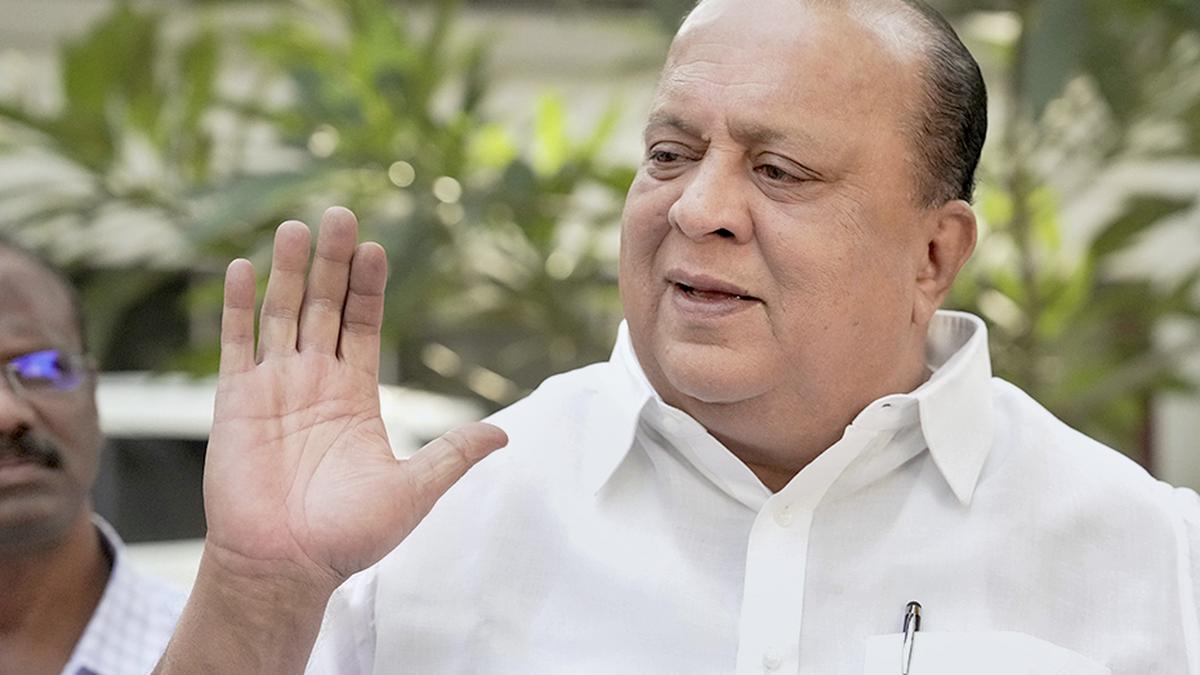
Pune car crash: Will overhaul civil hospital system to make it foolproof, says Maharashtra Minister Hasan Mushrif
The Hindu
Maharashtra Minister vows to revamp civil hospital system after blood sample manipulation scandal at Sassoon hospital.
Maharashtra Minister Hasan Mushrif has promised to make the system at civil hospitals foolproof, an assurance coming in the wake of alleged manipulation of blood samples at Pune’s Sassoon hospital in connection with the Porsche crash. The Medical Education Minister was speaking to reporters in Mumbai on May 30.
Police have arrested Dr. Ajay Taware, then head of the department of forensic medicine at Sassoon, medical officer Dr. Shrihari Halnor and staffer Atul Ghatkamble for allegedly swapping the blood samples of the teenager, who police say was driving the Porsche.
According to police, the minor driver was drunk at the time of the incident which resulted in the death of two IT professionals in the early hours of May 19 in Kalyani Nagar area of Pune city.
“The police found that Dr. Ajay Taware was on leave on the night of the Pune accident and he got a call from someone. He accepted ₹3 lakh, called Dr. Halnor to manipulate the blood samples. This was absolutely wrong,” Mr. Mushrif said.
Police had told a court in Mumbai on May 30 that the juvenile's blood sample was replaced with that of a woman, to show that he was not drunk at the time of the accident. Sources in the Maharashtra Public Health Department claimed that she was his mother.
“We need to introduce some changes and take strict action to stop the outsider interference in the functioning of hospitals. We will overhaul the system and make it foolproof,” he said. The Department will also teach a “lesson of his lifetime” to Dr. Taware,” he said.
Asked about Sassoon General Hospital dean Dr. Vinayak Kale being sent on leave, the Minister said, “The report of the committee (set up to probe the blood sample episode) stated that Dr. Kale did not perform his duties properly. The decision to send him on leave has nothing to do with him taking my name during a press conference.”

“Writing, in general, is a very solitary process,” says Yauvanika Chopra, Associate Director at The New India Foundation (NIF), which, earlier this year, announced the 12th edition of its NIF Book Fellowships for research and scholarship about Indian history after Independence. While authors, in general, are built for it, it can still get very lonely, says Chopra, pointing out that the fellowship’s community support is as valuable as the monetary benefits it offers. “There is a solid community of NIF fellows, trustees, language experts, jury members, all of whom are incredibly competent,” she says. “They really help make authors feel supported from manuscript to publication, so you never feel like you’re struggling through isolation.”

Several principals of government and private schools in Delhi on Tuesday said the Directorate of Education (DoE) circular from a day earlier, directing schools to conduct classes in ‘hybrid’ mode, had caused confusion regarding day-to-day operations as they did not know how many students would return to school from Wednesday and how would teachers instruct in two modes — online and in person — at once. The DoE circular on Monday had also stated that the option to “exercise online mode of education, wherever available, shall vest with the students and their guardians”. Several schoolteachers also expressed confusion regarding the DoE order. A government schoolteacher said he was unsure of how to cope with the resumption of physical classes, given that the order directing government offices to ensure that 50% of the employees work from home is still in place. On Monday, the Commission for Air Quality Management in the National Capital Region and Adjoining Areas (CAQM) had, on the orders of the Supreme Court, directed schools in Delhi-NCR to shift classes to the hybrid mode, following which the DoE had issued the circular. The court had urged the Centre’s pollution watchdog to consider restarting physical classes due to many students missing out on the mid-day meals and lacking the necessary means to attend classes online. The CAQM had, on November 20, asked schools in Delhi-NCR to shift to the online mode of teaching.









